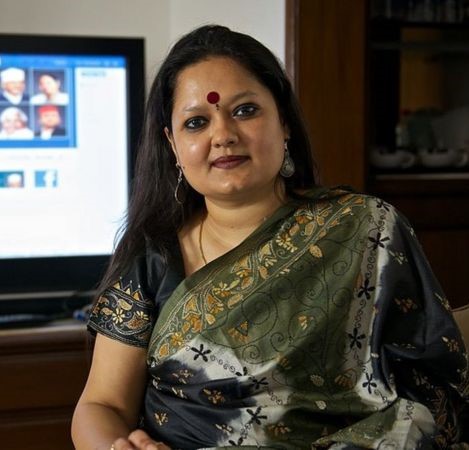(ATF) The resignation on Tuesday of Facebook’s top lobbyist in India, Ankhi Das, after a global outcry about inaction over hate speech, has led to renewed demands for social media platforms in India to adhere to a code of conduct – as in Europe.
The push for an Indian code on social media platform comes just days after Das appeared before Parliament’s Joint Committee on the Personal Data Protection Bill.
The Committee questioned Das about Facebook’s advertising model, plus its targeting of audiences, earnings and taxes, and its models for data storage and transfer. But it is not clear yet if her resignation is in any way connected to the hate speech controversy.
Yet, while the hate speech controversy has underscored the need for regulating social media platforms in India, experts say it is not an easy process.
“We recently conducted a survey on internet trolling, hate speech and abuse on social media, which clearly revealed that Indian users are tired of getting trolled and abused through these platforms and demanded that both the government and social media companies should craft out and follow a common code of conduct,” Sachin Taparia, founder of LocalCircles, an independent community engagement platform, told Asia Times Financial.
“But while, controlling social media platforms is the need of the hour, it is a tough job,” he said.
According to LocalCircles, 89% of the 58,000 social media users chosen from around the country demanded that social media platforms should remove offensive, hateful and rumour-based content proactively. An equal number of respondents, the survey found, wanted social media companies in India to follow a code of conduct similar to the European Union.
Under the European Commission’s Code of Conduct on IT companies announced in May 2016, Facebook, Twitter, YouTube and Microsoft are required to follow a series of commitments to combat the spread of online hate speech that is illegal in Europe. These companies are also required to ensure that their online platforms do not offer opportunities for illegal online hate speech to spread virally.
Pushback against Facebook
A political storm erupted in India after the Wall Street Journal reported in August that policy chief Ankhi Das refused to take down anti-Muslim comments by a Hindu nationalist lawmaker because of fear that it could damage Facebook’s business.
That report led to more than 40 rights groups worldwide writing a letter to Facebook chief executive Mark Zuckerberg in September demanding that Das be sidelined, pending the outcome of a civil rights audit.
But Facebook said Das was not responsible for any decisions governing hate speech and that its public policy team was separate from the content policy team that makes such decisions.
READ MORE: Political blame-game in India puts Facebook in a tight spot
However, Facebook employees were also irked by its stance. They questioned whether proper content regulation policies were being followed in India, which led to the biggest public relations and political crisis the social media giant has faced in the country.
Still, Facebook rejected those allegations and claimed that in India it “prohibits hate speech and content that incites violence, and enforces these policies without regard to anyone’s political position or party affiliation.
“While we know there is more to do, we’re making progress on enforcement and conduct regular audits of our process to ensure fairness and accuracy,” a Facebook spokesperson said.
Challenges of controlling Facebook
Facebook has more than 340 million users in India, and 400 million people use its WhatsApp fast messaging service. So, it is not only the biggest social media platform, but it is also powerful.
And its influence is growing. In April, it announced it was investing $5.7 billion in Indian mobile internet giant Reliance Jio, owned by the country’s richest man Mukesh Ambani, to gain a major foothold in India’s exploding mobile payments service.
Cyril Amarchand Mangaldas, which claims to be the largest and one of the best full service law firms in India, says social media platforms like Facebook are no longer just a communication platform between individuals but has become a media giant with a reach like no other.
These platforms are also dynamic and swift, which is why “controlling social media is easier said than done,” the law firm said in a report. “(Besides) it is a Herculean task to recognise, flag and contain the spread of information in a stipulated timeframe (within a certain time after posting).”
Automated internet bots also add to the problems. These are automated accounts that pose as real people, but their main function is to reblog and share posts, often leading to a ‘viral’ circulation.
Laws on intermediary liability, which could force users of social media to exercise due diligence while posting on these platforms, are still evolving, which means censorship is hard to implement.
Nevertheless, if there’s a will, there’s a way.
“If government and social media platforms both decide that they want to make India’s social media spaces safe, there is no reason why it cannot be done”, LocalCircles’ Taparia said.
LocalCircles, he said, plans to push this issue, to escalate public opinion and make social media platforms safer spaces by trying to ensure that use of real identity is mandatory and that platforms proactively remove hateful, abusive and inappropriate content.
“For platforms that may mean lower growth, because such hateful or inappropriate content is what goes viral many times. But what they will experience is more constructive and deeper engagement”, he said.
























